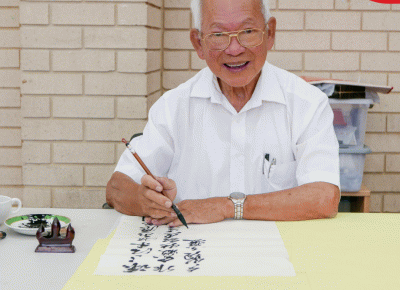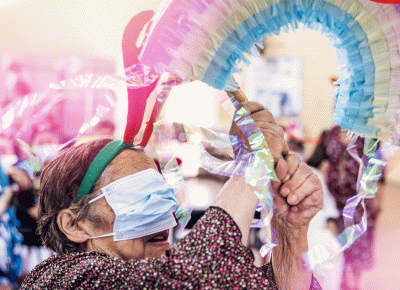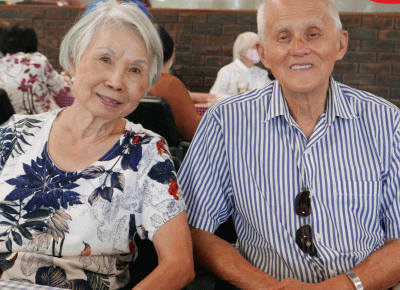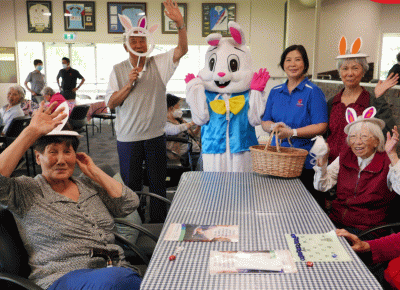Have you ever pondered the delicate balance between the quality and quantity of life, especially in the later chapters of one's journey?
Palliative Care, a subsidised therapeutic service offered by the Australian government, maintains its English term universally. Yet, its Chinese renditions vary widely due to regional and cultural distinctions: "姑息医疗", "安宁疗护", "临终关怀", "缓和医疗", and "缓和护理", among others. Particularly for Asians, especially those without an English-speaking background, the concept of Palliative Care may be unfamiliar or misconceived.

Addressing this, Chung Wah Community Care (Chung Wah CC) recently invited Dr. Ruth Wei from Murdoch University to conduct two seminars in early September at the Balcatta and Willetton Community Hubs, aiming to acquaint seniors with the fundamental understanding of Palliative Care. Dr Wei initiated the seminars, performing an "ice-breaking" activity, engaging older people in a discourse on the 'quality and quantity' of life. Utilising her extensive experience in medical care, she substantiated her discussion with real-life examples to differentiate between the concepts of 'quality' and 'quantity' of life, receiving enlightening and open responses from the elderly participants.
What is Palliative Care?
Dr. Wei eloquently traced the origins of palliative care. In 11th-century Europe, following Roman religious traditions, churches became a refuge, providing care for the sick, injured, and dying travellers, eventually evolving into an early form of palliative care. In 1967, Cicely Saunders of the UK pioneered palliative care, spreading relevant services and research overseas. Subsequently, Dr. Mount from Canada named this service Palliative Care, which has since proliferated prosperously across hospitals and communities worldwide.
How Does Palliative Care Differ from General Medical Care?
Whereas general medical care prioritises disease and utilises various medical methodologies for treatment, Palliative Care foregrounds the patient and their family, intending to enhance their quality of life. The World Health Organization (WHO) defines Palliative Care as "a systematic approach provided to patients with life-threatening diseases and their families, aiming to improve their quality of life and crisis management capacity. It addresses the early identification of pain and suffering through meticulous evaluation and effective symptom management, meeting patients' and their families' physical, psychological, and spiritual needs".
Who Requires Palliative Care?
Palliative Care is pertinent to anyone - irrespective of age, race, cultural background, or religion. WHO survey data reveals that globally, over 40 million individuals require Palliative Care annually. In terms of patient categorisation, approximately 39% of demand stems from patients with cardiovascular diseases, 34% from cancer patients, 10% from chronic respiratory disease patients, 6% from AIDS patients, and 5% from diabetes patients.


The Palliative Care Service Process
The palliative care team comprises specialist doctors, nurses, auxiliary medical professionals (such as physiotherapists nutritionists), social workers, psychotherapists, and volunteers. Palliative Care services can commence from early identification and intensify as the condition progresses, assisting patients to 'live' with dignity during the terminal stage of their lives. Following a patient's passing, the Palliative Care team continues to support the family through their grief.
Dr Wei consciously slowed down the pace of the lecture, allowing the elderly attendees to gradually and positively digest and comprehend Palliative Care. After the seminar, the seniors expressed their appreciation with warm applause, reflecting an eagerness for further in-depth understanding of Palliative Care.

Chung Wah has been servicing the WA community since 1909, dedicated to improving the quality of life of individuals from diverse backgrounds. Moreover, Chung Wah CC has over 35 years of professional care experience helping seniors and people with disability improve their well-being and better integrate into the community. In 2023, we're promoting our theme, "Embrace, Elevate & Flourish", and build a better community for all.





